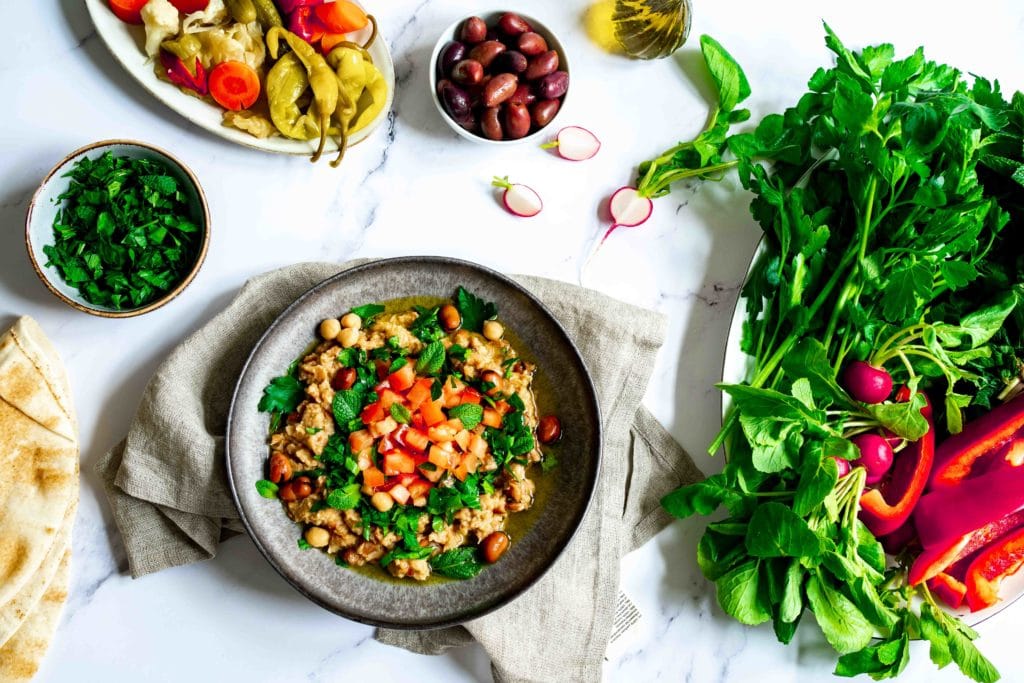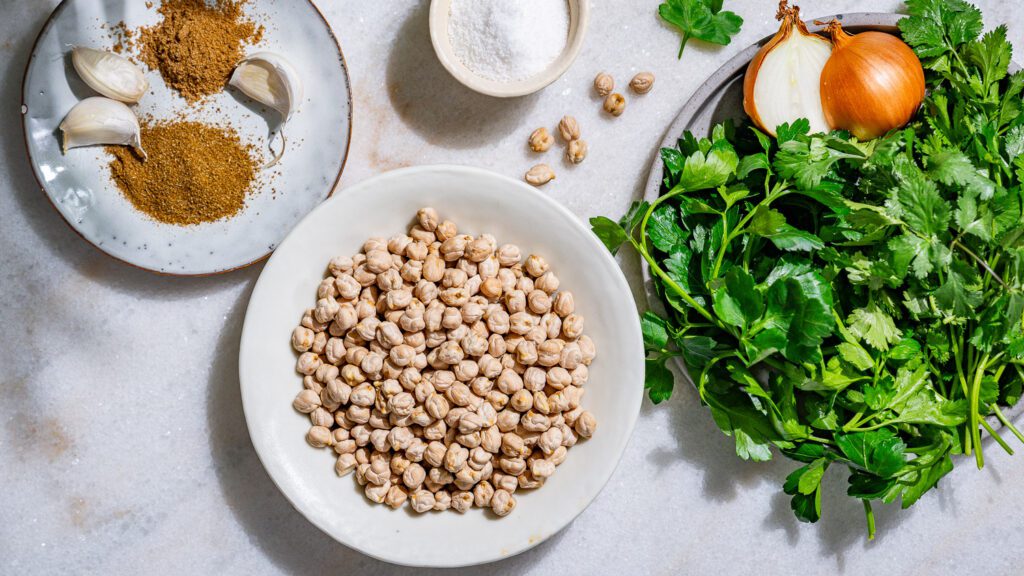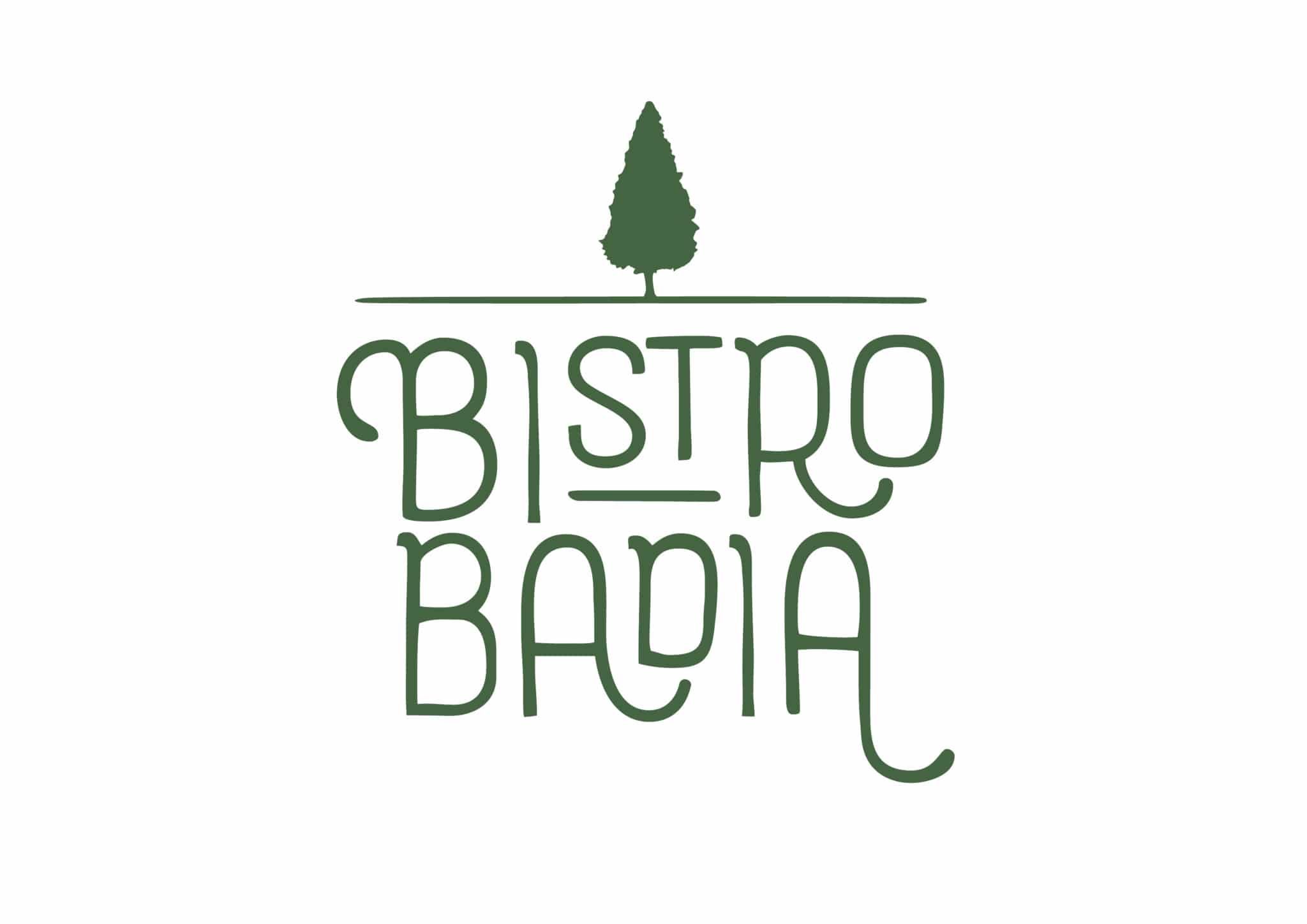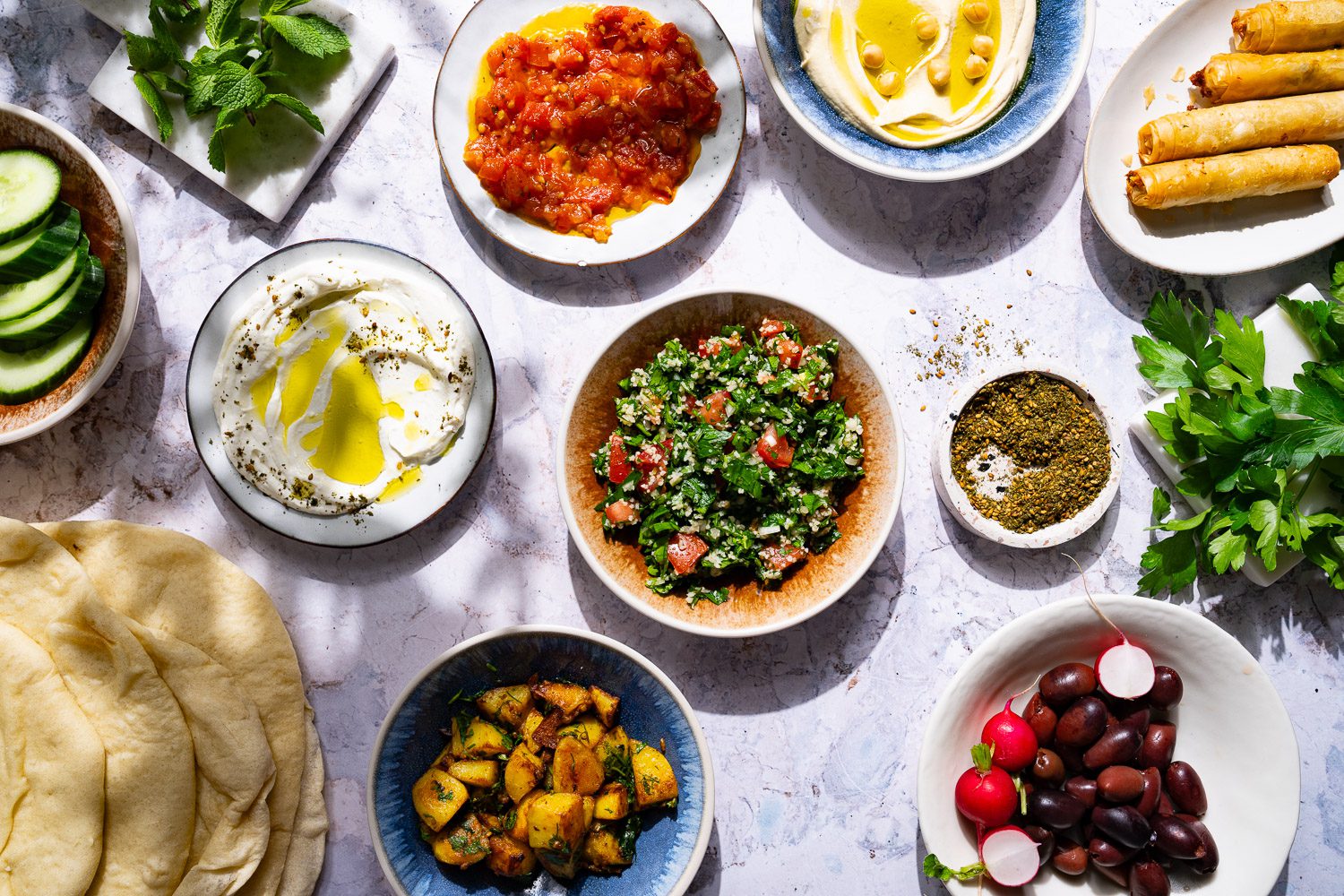Mediterranean diet: How to benefit from a healthy Mediterranean cuisine!
Let’s be honest: what could be better than fresh vegetables, delicious fish and really good olive oil? Exactly, almost nothing! And if you’re already paying attention, you should take a look at what the so-called Mediterranean diet has up its sleeve. Not only is it super tasty, but it can also massively boost your well-being.
This nutritional concept is based on the healthy habits of Mediterranean cuisine and not only supports your cardiovascular system, but also promotes balanced weight management. Bye bye yo-yo effect! In this article, I give you practical tips on how you can incorporate the Mediterranean diet into your everyday life, eat delicious food and do something good for your health.
What is the Mediterranean diet?
Let’s keep it short and sweet: the Mediterranean diet is a way of eating that includes mainly fresh fruit and vegetables, wholegrain products, nuts, seeds, fish and seafood.
Cold-pressed olive oil is at the heart of this form of nutrition. The Mediterranean diet is known for its health-promoting properties, including supporting heart health and promoting a balanced lifestyle. It largely avoids (highly) processed foods and red meat (in moderation), instead focusing on natural, unprocessed foods and a variety of nutrient-rich ingredients.
The most important facts at a glance
- The Mediterranean diet is not to be confused with Mediterranean cuisine – although it is based on it. It is a nutritional concept.
- The Mediterranean diet is good for your heart – it promotes a heart-healthy diet and is based on plant-based foods, wholegrain products, fish and plenty of olive oil.
- Red meat tends to be consumed in moderation here. (As you can see, this is where the difference to Mediterranean cuisine begins, because a lot of red meat is now also eaten here).
- The Mediterranean diet can reduce the risk of cardiovascular disease and has positive effects on weight management (maintaining or losing weight) and your mental performance.
- The Mediterranean diet can be practiced everywhere with local adaptations. To do this, regional foods are used that correspond to this form of nutrition.

The historical background
In the 1950s, Ancel Keys looked at eating habits in different parts of the world and made an exciting discovery. In the sunny Mediterranean, especially on Crete, people were surprisingly healthy and lively despite the high-fat diet and simple health system. The reason? Your traditional diet, full of fresh vegetables, fruit, fish and of course – olive oil!
These findings led to the famous“Seven Countries Study“, which showed that a diet as practiced in the Mediterranean region can drastically reduce the risk of heart disease. But that’s not all: in 2010, UNESCO even declared this diet an intangible cultural heritage of humanity.
And the cool thing is: this diet is more than just food. It is a reflection of the agricultural traditions, fishing and culinary practices of the Mediterranean region. It is closely linked to seasonal festivals and religious celebrations.
Why the Mediterranean diet is so healthy

The principle of the Mediterranean diet is really very simple:
- Plant-based foods such as vegetables, fruit, pulses and wholegrain products form the basis.
- Olive oil is the main source of fat.
- Fish, poultry and dairy products are consumed in moderate quantities.
It is important to emphasize that “Mediterranean diet” does not mean that all people in Mediterranean countries eat exactly the same way. Rather, it is a kind of recommended diet based on the traditional eating habits of this region.
Benefits for the heart and circulation
The Mediterranean diet is rich in olive oil, nuts, oily fish and other foods that contain healthy fats and omega-3 fatty acids. This absolutely powerful combination not only helps to lower blood pressure, but also improves the elasticity of the blood vessels. So you’re eating really tasty food and doing something good for your body at the same time!
One of the most remarkable benefits of the Mediterranean diet is its positive effect on the cardiovascular system. Studies have shown that switching to this diet can greatly reduce the risk of cardiovascular disease. Patients with metabolic syndrome were able to reduce their risk of cardiovascular disease by 35% by switching to this diet.
A high proportion of omega-3 fatty acids, which are found particularly in fish and seafood, have a positive effect on the cardiovascular system.
The role of omega-3 fatty acids
Omega-3 fatty acids play a crucial role in the Mediterranean diet. They are mainly found in fish and make a significant contribution to health. At 1.5:1, the ratio of omega-6 to omega-3 fatty acids in the Mediterranean diet is considerably more favorable than in the modern Western diet, where it is around ten times higher. Wow!
Is the Mediterranean diet also suitable for vegans?
You don’t have to rely on fish to get the healthy fats that make the Mediterranean diet so valuable. There is a whole range of vegan foods that are rich in omega-3 fatty acids and other healthy fats. These include, for example:
- Avocados: A real superstar when it comes to healthy fats. Plus point: they are also super versatile!
- Nuts and seeds: Walnuts, linseed, chia seeds and hemp seeds in particular are great sources of omega-3.
- Vegetable oils: Linseed oil and hemp oil have a high proportion of omega-3 fatty acids.
These vegan alternatives are not only great for your heart health, but are also anti-inflammatory and support your general health. So, even without fish you can benefit from the advantages of the Mediterranean diet!
Good food puts you in a good mood: the psychological aspects
The Mediterranean diet is not only good for your body, but also for your soul. It’s not just about what’s on the plate, but also about what’s around it – the way food is appreciated and enjoyed in Mediterranean culture.
- Conviviality and joie de vivre: in the Mediterranean, meals are often a social event that brings people together. It’s about sharing, laughing and enjoying – all things that strengthen our mental well-being.
- Mindfulness and enjoyment: Mediterranean meals are often enjoyed slowly and consciously. This not only promotes mindfulness, but also helps you to appreciate and enjoy your meals more.
- Variety and color: The wide range of colorful fruits and vegetables is not only a feast for the eyes, but also provides important vitamins and minerals that strengthen your nerves and keep you fit.
Enjoying meals together
I personally like this topic very much and it is also important to me. Eating together is a central part of Mediterranean culture and strengthens social bonds. What could be nicer than sitting at the table and eating together? Don’t gulp down everything, but be mindful – eat slowly and consciously. By consciously enjoying yourself, you can reduce stress and increase your well-being.
Tips for starting the Mediterranean diet
Incorporating the Mediterranean diet into your everyday life is easier than you think. Here are a few tips to get you started:
- use extra virgin olive oil as a cooking oil – yes, olive oil is excellent for cooking and should not only be used in salads.
- integrate fish or seafood (in moderation) into your diet.
- leave out the meat.
- eat lots of vegetables.
In general, I can tell you that you should simply integrate as many vegetables as possible into your meals and replace refined grain products with whole grain products. Plan your meals in advance, as this makes the transition easier because you always have something available and don’t have to think spontaneously.
Mediterranean diet: shopping and eating habits
Nutrition always starts with the right shopping! Here are a few tips on how you can better integrate the Mediterranean diet into your everyday life:
Buy as fresh and seasonal as possible: Visit local markets regularly and choose fresh, seasonal produce. Here are some examples of Mediterranean foods you can look for:
- Fruit and vegetables: tomatoes, zucchinis, eggplants, peppers, leafy greens, citrus fruits, berries.
- Pulses: lentils, chickpeas, white beans.
- Nuts and seeds: Walnuts, almonds, pine nuts, chia seeds.
- Fish and seafood: salmon, sardines, mackerel.
- Dairy products: Feta, Greek yogurt, Parmesan cheese. (Fortunately, vegan is now also possible!)
Stock up on supplies: Always keep your kitchen well stocked with Mediterranean basics such as:
- Oils and fats: olive oil, avocado.
- Whole grain products: Quinoa, wholemeal pasta, wholemeal bread.
- Herbs and spices: Basil, oregano, rosemary, thyme, garlic.
Plan, prepare and enjoy meals
- Simple dishes: Mediterranean cuisine is often really uncomplicated. Try simple recipes with fresh ingredients, such as fasolada or a lentil and eggplant stew.
- Experiment with flavors: Use a variety of herbs and spices to give your dishes that special Mediterranean flair. Taboulé, for example, is a very good recipe with lots of fresh herbs.
- Enjoyable meals: Take time for your meals and enjoy them to the full. Mediterranean-style dining is an opportunity to nourish both the body and the soul
- Eat together: Invite friends or family over and turn the meal into a sociable experience.
I mean, you’re here on a food blog that just happens to have Levantine cuisine as its theme – so feel free to take a look at the recipes.
Fancy a few examples of delicious recipes?

As I said, there are plenty of recipes here on the blog. However, I would be happy to give you a few suggestions to get you started:
- Green bean salad with artichokes on bean puree
- Pasta with vegetables
- Chickpea cream
- Chickpea stew
- Tomato soup with white beans
- Lentil soup

Mediterranean diet and weight management
You can also lose weight with the Mediterranean diet – as long as you are in a calorie deficit, of course. But this diet is not necessarily designed for that. The Mediterranean diet is intended to lead you to a healthy lifestyle, which can then also support weight management. By emphasizing quality of life and conscious enjoyment of food, the Mediterranean diet can actually change your behavior. It becomes a habit to eat healthily and this leads to better weight management.

Long-term change instead of a short-term diet
A long-term approach is the key to any dietary change. The Mediterranean diet is not a temporary diet. The focus is on the enjoyment and quality of the meals eaten, counting calories is not necessarily on the agenda – unless you need to lose a few kilos for health reasons.
Exercise as a supplement
Once you get going, you’ll love it. In addition to nutrition, physical activity also plays a decisive role in a healthy lifestyle. So go outside, walk every day, take lots of steps and give your muscles something to do. Strength training is very important for a healthy body! The same applies here: stay on the ball in the long term, because this is how you build up a routine.
Mediterranean diet worldwide
The Mediterranean diet has spread beyond the Mediterranean countries and is becoming increasingly popular worldwide. But can this diet really be implemented in every part of the world? The answer is: Of course! You would just have to adapt your diet a little, because there are local foods all over the world that can be easily incorporated into the Mediterranean diet.
Variations of the Mediterranean diet
There are also different variations of the Mediterranean diet that adapt to local conditions. One example is the New Nordic Diet, which shares many characteristics with the Mediterranean Diet and consists of foods traditionally found in the Nordic countries, such as berries, fatty fish and vegetables.
Here, for example, rapeseed oil is used as the main source of fat instead of olive oil.
Studies and research results
Numerous scientific studies have shown that the Mediterranean diet can reduce the risk of many chronic diseases.
What particularly fascinated me: The Mediterranean diet does indeed have a positive effect on life expectancy.
The Mediterranean diet also has an effect on mental performance. Studies have shown that it can even delay the onset of Alzheimer’s and slow down the progression of dementia.
Summary
That was quite a lot of input. But I hope I’ve been able to answer the most basic questions about the Mediterranean diet and whet your appetite. In summary, the Mediterranean diet is a balanced and sustainable way of eating that focuses on the quality and diversity of the food consumed.
What I particularly like about it is that the pleasure of eating is placed in the foreground. It is based on a plant-based diet, makes olive oil the primary source of fat and recommends moderate consumption of fish, poultry and dairy products. Particularly noteworthy are the positive effects on the cardiovascular system (heart and so on), mental health and body weight regulation.
However, it is not only health that is promoted, but also social interaction and conscious enjoyment when eating. You can adapt them to your everyday life and also use them worldwide by taking local preferences and availability into account. How does that sound to you? Let me know in the comments.

Frequently asked questions
What can you eat on the Mediterranean diet?
The Mediterranean diet allows you to eat lots of fresh vegetables, salad, nuts, fish and olive oil. A glass of red wine a day is also allowed, but the calorie intake should be kept in mind in order to have an influence on body weight.
How do you eat a Mediterranean diet?
The Mediterranean diet is based on fresh vegetables, fruit, pulses, nuts and fresh fish as well as healthy fats and numerous herbs and spices. This is the traditional diet of the countries around the Mediterranean, which can strengthen the immune system and boost cognitive performance.
What do you eat for breakfast on the Mediterranean diet?
On the Mediterranean diet, you eat mainly fresh fruit, crunchy vegetables, eggs, bean puree, yogurt or porridge for breakfast to avoid cravings. Coffee, bread and sweet jams are less recommendable.
What should you not eat on the Mediterranean diet?
On the Mediterranean diet, you should avoid red meat and fatty dairy products, but eat plenty of fresh vegetables, salad, nuts, fish and olive oil.
What are the benefits of the Mediterranean diet for the cardiovascular system?
The Mediterranean diet can significantly reduce the risk of cardiovascular disease and has a positive effect on the blood lipid profile. It therefore offers clear benefits for the cardiovascular system.







